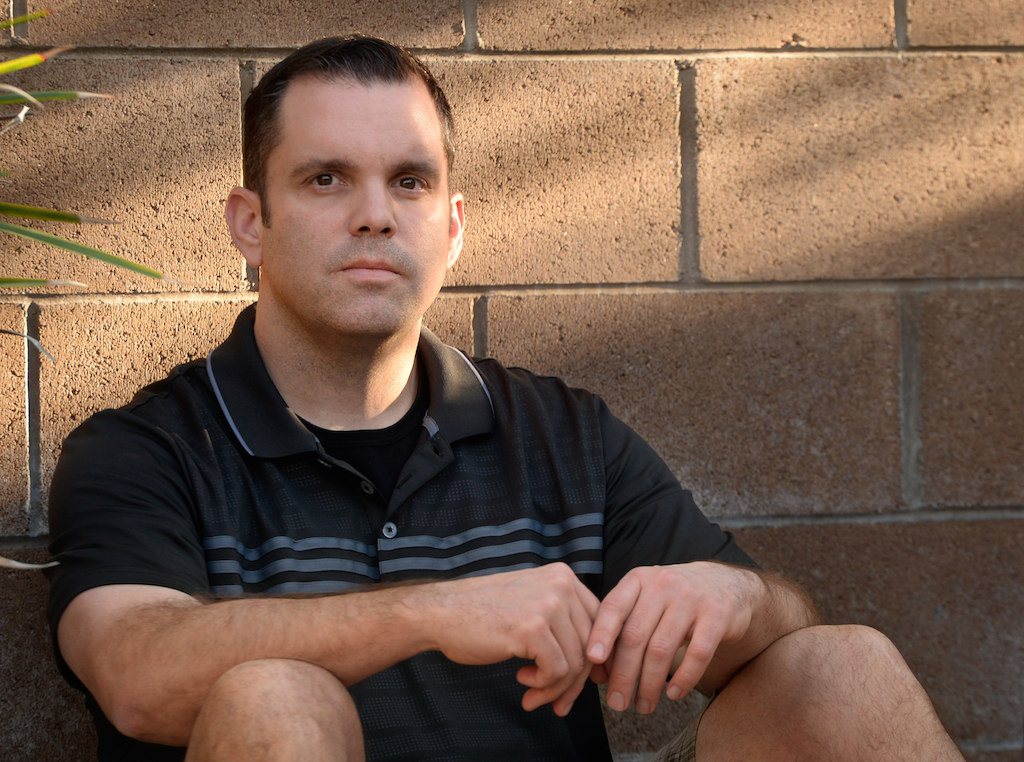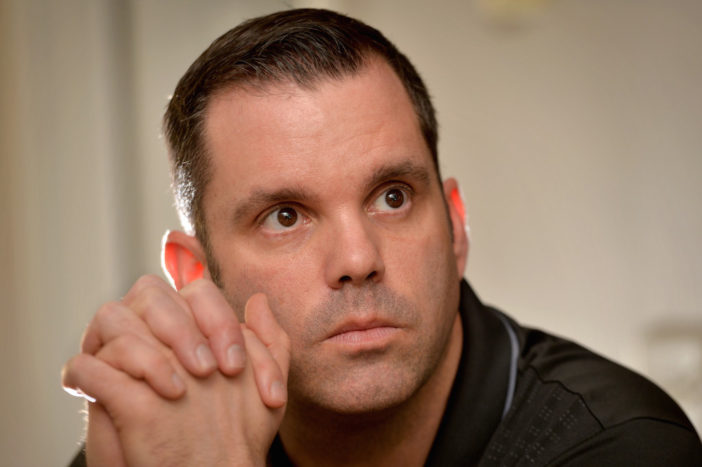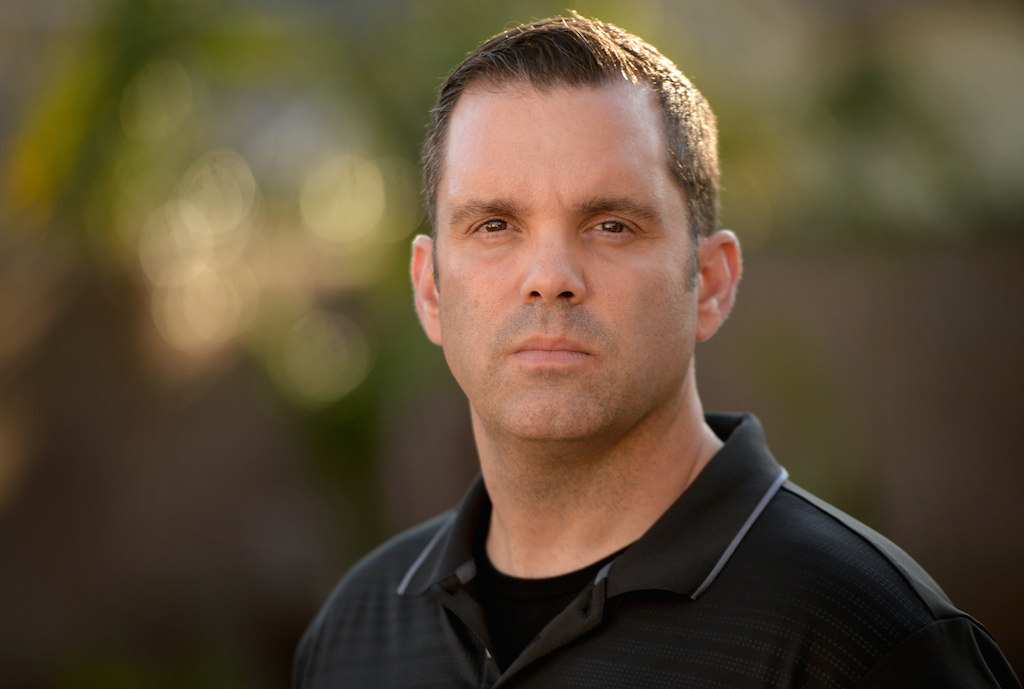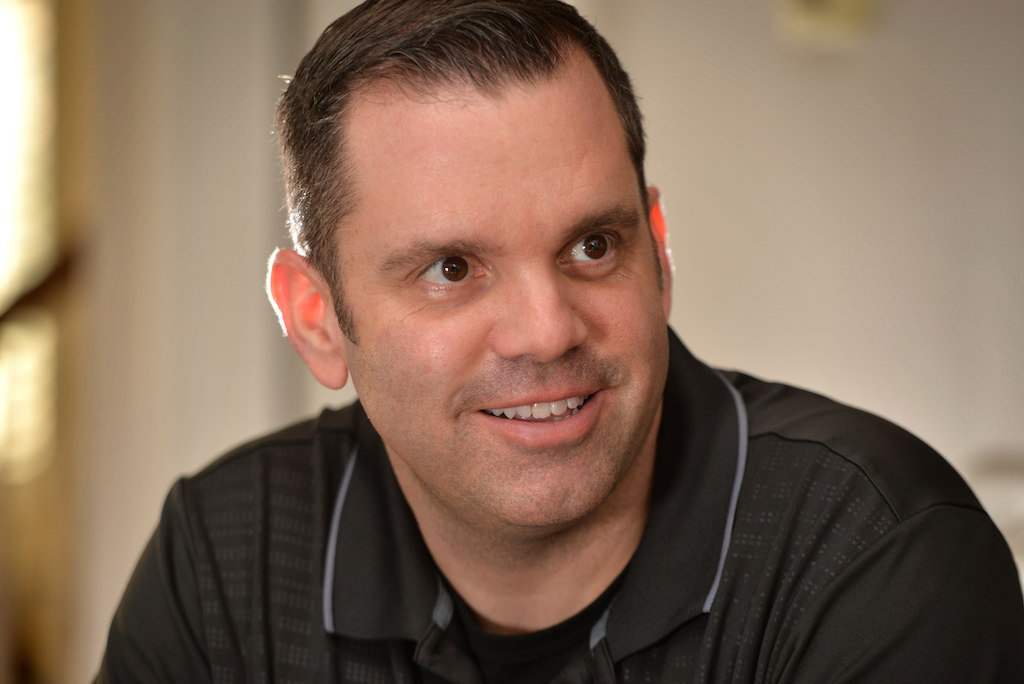The veteran officer’s brown eyes widen.
“We all have a story to tell,” John Ema says.
Ema doesn’t want to discuss what happened to him 12 years ago that forever changed him — a job-related trauma that led him to the church and to a deeper understanding of the unique challenges that come with police work.
But Ema, 43, a recently promoted sergeant at the Fullerton Police Department, will say this:
Not nearly enough attention is being paid to the mental health of police officers — and cops are killing themselves at an alarming rate.
Ema cites a nationwide study showing that 126 police officers took their own lives in 2012 — the most recent year for which reliable numbers are available.
“Do you know how many officers died in the line of duty that same year?” Ema asks from his kitchen table on a recent day off.
The answer, he says, is 130 — a number confirmed by the Officer Down Memorial Page (odmp.org).

Says Sgt. Ema: “Cops are dying because they’re not taking care of themselves emotionally and physically.” Photo: Steven Georges
Ema calls it a “silent” and “vastly underreported” tragedy that these numbers nearly are identical — that given the dangerous nature of the profession, one would assume that the number of cops killed in the line of duty would dwarf the number of those who took their own lives.
Not so.
“And that’s a problem,” says Ema, who before joining the Fullerton PD in 2005 was a police officer in Los Alamitos for seven years.
So, with the support of top brass at the Fullerton Police Department and other Orange County law enforcement agencies, Ema is doing something about the problem.
In January, members of a Peer Support Team at the Fullerton Police Department held their first meeting — a group of 19 sworn employees and professional staff devoted to listening to and helping their colleagues in need and, if necessary, referring them to professional counselors.
Ema got the idea of setting up the team back in 2013 after hosting a ride-along for Heather Williams, now the Regional Peer Support Coordinator for the Orange County Sheriff’s Department.
Back then, Williams was program director and crisis response team coordinator for CSP Victim Assistance Programs. Her new job at the OCSD started last August.
The Fullerton Police Department’s new Peer Support Team is closely modeled after a pioneering Peer Support Program at the Tustin Police Department. Fullerton is the latest of several Orange County police departments to establish a peer-support program for employees experiencing personal or professional problems.
The concept is simple: Cops may feel more comfortable talking to one of their own in a low-key and confidential setting before turning to an outside professional or an Employee Assistance Program for such issues as post-traumatic stress disorder, depression and anxiety.
Getting police officers to open up is notoriously difficult in a profession known for its culture of toughness and fear of showing weakness, says Ema. But talking out problems is critical, he says, for people frequently exposed to human suffering including death, destruction, disaster, ghastly accidents and unspeakable crimes.
“Law enforcement agencies spend millions of dollars and hours of training to prepare cops for critical incidents, but what are they doing for officers after a critical incident?” asks Ema, who in November earned a master’s of science degree in public administration from National University.
The title of Ema’s master’s thesis is “Understanding Police Suicides, Police Officer Mental Health, and the Impact of Peer Support Programs.”
It’s too early to conclusively say if peer support programs are helping, but Ema believes they are. Peer counselors, he notes, are familiar with the demands of police work and therefore are better able to understand the unique stressors inherent in the work.
In his thesis, Ema cites a 2013 report by the National Study of Police Suicides showing a reduction in police suicides to 126 in 2012, down from 141 in 2008.
Researchers believe, but cannot say for sure, that the reduction in police suicides may be a result of an increased number of police departments adopting peer support programs and the increased willingness of officers to seek professional help, Ema says.
More studies are needed, he adds.
But Ema has seen the value of peer support first hand.
A close friend of his who works in the civilian position of CSI technician at the Fullerton Police Department was traumatized by an officer-involved shooting she witnessed in 2013, Ema says.
Talking things out with Williams, as well as Ema and other officers, helped the woman immensely, he says.
Ema says he was surprised at, and encouraged by, the strong response to the idea of a Peer Support Team within the Fullerton Police Department. Ema is one of three team leaders, along with fellow sergeants Steve Williams and Tony Bogart, on the team, which is supervised by Lt. Andrew Goodrich.
“Lt. Goodrich was really the supportive conduit between me and staff and he put in tons of time and work into getting the team started at FPD,” Ema says.
Williams says peer support programs have proven to be effective in mitigating the impact of trauma on first responders and “giving the men and women who protect our community the safety in talking about how they feel.”
Adds Williams: “Ultimately, peer support is changing the culture of law enforcement by giving first responders permission to be human without judgment or stigma.”
Ema, who grew up in Placentia and attended Valencia High School and Cal State Fullerton, says it’s vital for more police agencies to address the issue of suicide and mental health issues within their ranks.
“Cops are dying,” Ema says, “because they’re not taking care of themselves emotionally and physically.”
Sgt. Ema can be reached at jema@fullertonpd.org
 Behind the Badge
Behind the Badge





